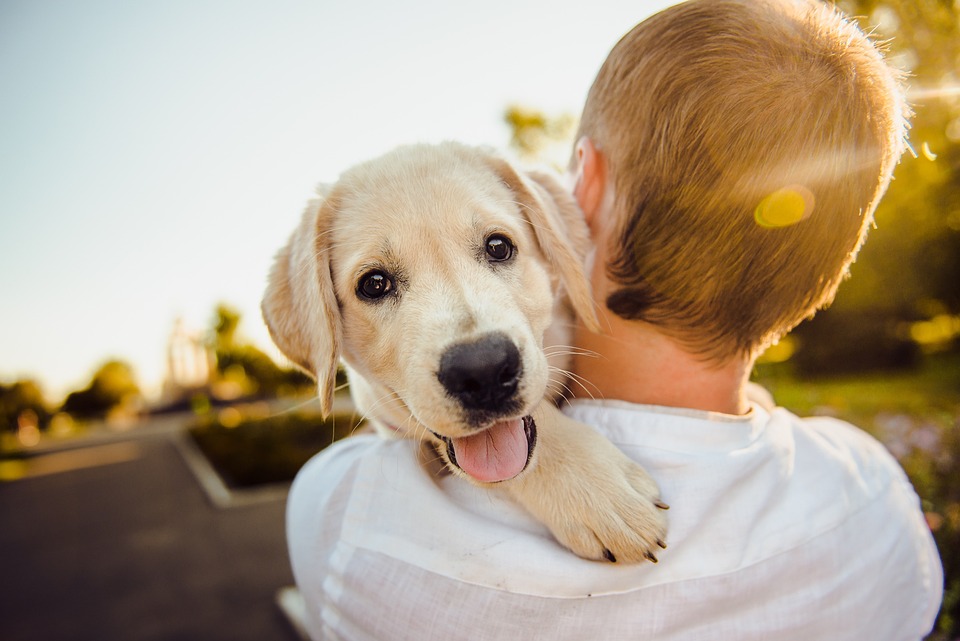As your beloved canine companion grows older, it’s essential to provide them with a comfortable and supportive environment that caters to their specific needs. By making a few adjustments and considering their unique requirements, you can ensure your senior dog enjoys their golden years to the fullest. In this article, we will guide you through the process of creating a safe and nurturing environment for your aging pooch.
I. Understanding the Needs of Senior Dogs
Aging-related changes in dogs:
– Physical limitations: As dogs age, they may experience joint stiffness, arthritis, and reduced mobility.
– Cognitive function decline: Senior dogs may show signs of cognitive decline, such as disorientation or difficulty with house training.
– Reduced sensory abilities: Older dogs may have diminished hearing or vision, requiring special attention.
II. Designing a Safe Living Space
1. Flooring and traction:
To prevent slips and falls, opt for non-slip surfaces like carpets or rugs. Consider placing rugs or mats in areas where your dog tends to slip.
2. Navigating stairs:
If your senior dog has difficulty with stairs, consider installing ramps or stair treads to make it easier for them to navigate. Alternatively, you may want to create a ground-level living area where your dog can access everything without climbing stairs.
3. Comfortable resting spots:
Provide your senior dog with comfortable beds that offer orthopedic support or memory foam mattresses. Elevated beds can also help alleviate joint pressure.
III. Ensuring a Stress-Free Environment
1. Minimizing noise and disruptions:
Loud noises can cause stress for senior dogs. Reduce noise levels by closing windows and doors or using white noise machines. Establish quiet zones where your dog can retreat to when they need some peace and quiet.
2. Temperature control:
Keep your senior dog warm during colder months by providing them with cozy blankets or sweaters. In hot weather, make sure they have access to a cool and shaded area to avoid overheating.
3. Reducing anxiety and separation distress:
Maintain a consistent routine for your senior dog to help reduce anxiety. Consider using pheromone diffusers or calming supplements to help alleviate separation distress.
IV. Promoting Physical and Mental Stimulation
1. Regular exercise:
Adapt your dog’s exercise routine to their abilities. Low-impact activities like swimming or short walks can help keep them active without putting too much strain on their joints.
2. Mental enrichment:
Keep your senior dog’s mind sharp by providing them with interactive toys and puzzles. Training exercises can also provide mental stimulation and help strengthen the bond between you and your furry friend.
3. Regular veterinary check-ups:
Schedule regular check-ups with your vet to monitor and manage any age-related health issues. Discuss appropriate diet and supplements that can support your senior dog’s overall health and well-being.
V. Frequently Asked Questions (FAQs)
Q1. What diet is best for senior dogs?
Answer: Senior dogs often require a diet with fewer calories, higher fiber content, and joint-supporting supplements. Consult your veterinarian for specific dietary recommendations.
Q2. How often should senior dogs visit the vet?
Answer: Senior dogs should have regular check-ups at least twice a year. More frequent visits may be necessary if they have any health concerns.
Q3. How do I help my senior dog with mobility issues?
Answer: Providing a supportive environment with non-slip surfaces, ramps, and orthopedic bedding can help alleviate mobility issues. Consult your vet for additional advice and potential treatments.
Q4. Are there any warning signs of cognitive decline in senior dogs?
Answer: Yes, some signs of cognitive decline include disorientation, changes in sleep patterns, decreased interest in toys or activities, and difficulty with house training. If you notice these signs, consult your vet for guidance.
Q5. Is it normal for senior dogs to sleep more?
Answer: Yes, senior dogs tend to sleep more due to age-related changes and decreased energy levels. However, excessive sleeping or lethargy could indicate an underlying health issue, so it’s important to monitor your dog’s behavior and consult your vet if concerned.
Remember, providing a comfortable and supportive environment for your senior dog is crucial in ensuring their well-being and happiness during their golden years. By understanding their unique needs and making the necessary adjustments, you can help your furry friend age gracefully and comfortably.









